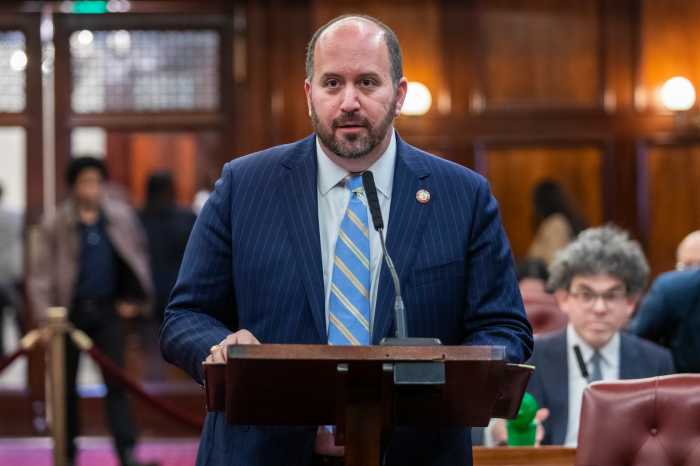As Ron Paul’s profile has risen during the Republican primaries, the charges that he is an anti-gay bigot have grown more pointed on gay blogs, while a few voices, notably blogger Andrew Sullivan, have expressed support for the 76-year-old — in the GOP contest, at least.
But Paul’s record suggests that while the Texas congressman is no friend of the lesbian, gay, bisexual, and transgender community, he is also not an older, slightly nuttier version of Rick Santorum, the former US senator from Pennsylvania who once likened homosexuality to incest and adultery.
“Ron Paul’s history of racist, homophobic, and anti-Semitic comments should give anyone pause,” Jerame Davis, the interim head of the National Stonewall Democrats, a political group, wrote in an email. “The fact that he has surged in the polls and looks poised to do well, or even win, in Iowa is simply mind-boggling and says a lot about the disarray of the Republican presidential field. He’s fooled a lot of fair-minded people with his disarming grin and friendly voice coupled with promises of less government and no more war.”
On discrimination, it is unlikely that Paul, who has served 11 terms in the House in three separate periods dating back to 1976, would support legislation such as the Employment Non-Discrimination Act (ENDA), which would ban discrimination based on sexual orientation and gender identity and expression in employment.
In rankings from the Human Rights Campaign (HRC), the nation’s largest gay lobby, Paul, whose campaign did not respond to a request for comment, has consistently opposed ENDA. It appears that he opposes all civil rights laws. In 2004, the House voted on resolutions noting the anniversaries of the Civil Rights Act of 1964 and Brown v. Board of Education, the 1954 US Supreme Court decision that led to school desegregation. Paul opposed both resolutions.
In the resolution on Brown, Paul cited the 1964 act, the Voting Rights Act of 1965, and the Fair Housing Act of 1968 — all are anti-discrimination laws -— and said, “Mr. Speaker, in short, forced integration and enforced equality are inimical to liberty. While they may be less abhorrent than forced segregation, they are nonetheless as likely to lead to resentment and are demonstrably as unworkable and hence ineffective.”
While Paul’s political views are generally socially conservative, he is typically represented as a libertarian and a champion of property rights. Those views do not extend to backing the buying and selling of human beings. In 2003, he supported a resolution that noted the 140th anniversary of the Emancipation Proclamation, an executive order issued by Abraham Lincoln that ended slavery in the ten states controlled by Southern rebels.
Paul’s scores on a number of issues with HRC have averaged just over 33 out of 100 over the past five Congresses and ranged from zero in the 107th Congress to 59 in the 111th Congress, which included 2009 and 2010.
In 2010, Paul voted for the repeal of Don’t Ask, Don’t Tell, the military’s policy that barred openly gay and lesbian service members and cost roughly 14,000 of them their jobs since the policy was enacted in 1993. That vote represented a change in position, which he explained, according to the Washington Post, by citing “several calls and visits from constituents who, in spite of the heavy investment in their training, have been forced out of the military simply because they were discovered to be homosexual. To me, this seems like an awful waste.”
In 2004 and 2006, Paul voted against amending the US Constitution to define marriage as between one man and one woman. though he does not support allowing gay and lesbian couples to wed. He saw the amendment as a usurpation of the states’ authority.
“Mr. Speaker, while I oppose federal efforts to redefine marriage as something other than a union between one man and one woman, I do not believe a constitutional amendment is either a necessary or proper way to defend marriage,” he said in 2006.
Paul said he supports the Defense of Marriage Act (DOMA), a law that bars federal recognition of same-sex marriages and allows the states to do the same.
“If I were in Congress in 1996, I would have voted for the Defense of Marriage Act, which used Congress’ constitutional authority to define what official state documents other states have to recognize under the Full Faith and Credit Clause, to ensure that no state would be forced to recognize a same-sex marriage license issued in another state,” he said in 2006.
Paul’s statement on the amendment and DOMA was placed in the Congressional Record in 2006 and the same statement had been placed there in 2004.
Paul’s opposition to queer community goals dates to at least 1980, when he was among a group of Washington legislators introducing anti-gay legislation. Paul’s bill, the Family Protection Act, barred the federal government from funding “any organization which presents male or female homosexuality as an acceptable alternative life style or which suggests that it can be an acceptable life style.”
Since 2004, Paul has sponsored bills that would bar the federal courts from hearing cases on same-sex marriage and he has also championed legislation that would close the federal courts to any cases related to sexual orientation.
“Mr. Speaker, I rise to introduce the We the People Act,” he said in 2005. “The We the People Act forbids federal courts, including the Supreme Court, from adjudicating cases concerning state laws and polices relating to religious liberties or privacy, including cases involving sexual practices, sexual orientation, or reproduction. The We the People Act also protects the traditional definition of marriage from judicial activism by ensuring the Supreme Court cannot abuse the equal protection clause to redefine marriage.”
Paul’s effectiveness in Washington has been sharply limited by the fact that he has taken up issues and adopted positions that are often outside of the mainstream, and just as often they depart from what most Republicans believe. A review of legislation he has introduced shows that he regularly sought to end US donations to and membership in the United Nations and other international organizations. He has also tried to end funding for various federal bureaucracies and promoted legislation that would link US currency to the value of gold. Typically, his bills have had few or no co-sponsors.
Paul has consistently voiced opposition to interventionist US military policy favored by many conservatives, and he has also associated with leading figures in the John Birch Society and other far right fringe groups.
“You simply have to scratch the surface and Paul’s libertarian utopia opens up to a dystopian nightmare of institutionalized discrimination, corporate abuse, isolationist foreign policy, and economic ruin,” Stonewall’s Davis wrote. “The Republican establishment knows this too, which is why the higher Ron Paul’s star rises, the more you’ll see mainline Republicans fall in line behind Milquetoast Mitt.”




































